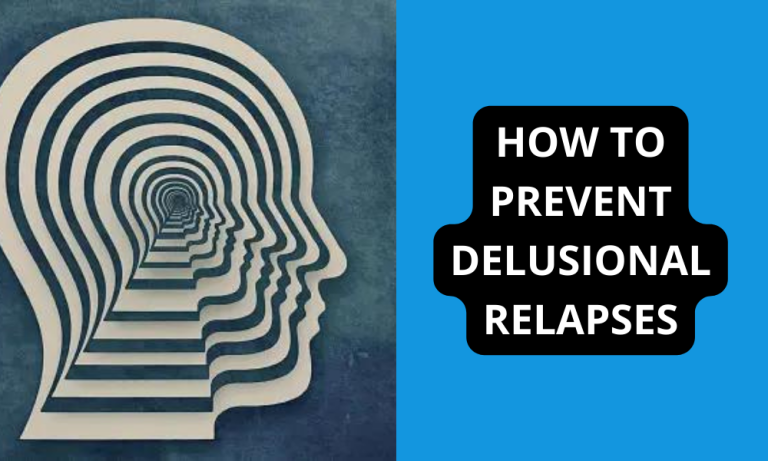How to Set Realistic Goals in Delusion Recovery?

Recovering from delusional beliefs can feel like an uphill battle. When you’re struggling just to distinguish reality from irrational thoughts, it’s easy to feel overwhelmed by the recovery process. However, focusing on small, achievable goals is key to climbing out of that emotional hole and gaining control over your mental well-being once again.
While overcoming delusional thinking won’t happen overnight, focusing on incremental improvements and celebrating the small wins makes the destination seem closer each day. You have the inner strength and resources to get better. All you need is the right roadmap. I hope the tips provided here give you a sense of direction and encouragement to keep walking step by step towards your most fulfilling life. Your resilience and future self are worth the effort. Let’s get started.
Understanding Where You Currently Are
The first step is gaining self-awareness about your current situation and mental state. It may be difficult to face the reality of what you are experiencing, but honest self-reflection is crucial. Take some time each day to journal about your thoughts and feelings without judgment. Be willing to accept professional help from a therapist if needed to gain an outside perspective.
Objectively analyzing your symptoms and level of functionality without shame will allow you to set appropriate recovery goals. For example, if basic self-care is a struggle, focus goals there before tackling interpersonal relationships. Be compassionate with yourself as you work to overcome irrational thinking patterns. Small steps forward are better than pushing yourself too hard too soon and possible relapse.
Guide To Set Realistic Goals in Delusion Recovery
Breaking Down Goals
Once you have a clear picture of your starting point, break any recovery goals down into smaller, more manageable tasks. For example, rather than the vague goal of “getting better,” commit to specific actions like attending therapy weekly or limiting time on the internet where delusional thoughts are triggered.
Striving for perfection will only lead to frustration. Accept that recovery is not linear and setbacks may occur. Focus on progress over a period of time rather than day-to-day ups and downs. Celebrate the small wins so motivation stays high.
You can also make goals time-bound to keep yourself accountable. For instance, commit to practicing relaxation techniques for 10 minutes daily rather than an undefined amount of time. Clearly defining your goals and dividing them into steps makes them seem less daunting to achieve.
Measuring Progress Objectively
Part of setting realistic goals is having a way to track your progress objectively. Keep a recovery journal where you rate your symptoms, thoughts, and behaviors on a numerical scale each week. Note what coping strategies you used and how effective they were.
Reviewing your progress over time, rather than moment-to-moment, will help maintain perspective that real change is happening. You may also want to include your treatment team in monitoring goals. Their clinical perspective can help ensure you do not set your standards too high or too low during early recovery.

Be willing to modify your goals as needed based on what you learn about your process. Recovery is not linear. Expect setbacks, but focus on your overall trajectory of improvement over time rather than individual steps backward. Measurement brings awareness that fits progress.
Starting With Self-Care Goals
For many, the first realistic recovery goals should focus on basic self-care activities that establish daily structure and well-being. Examples may include:
- Eating regular, nutritious meals each day
- Sleeping at least 6-8 hours per night
- Limiting time on unhelpful internet/media activities
- Showering daily
- Spending 30 minutes outside being active
- Completing enjoyable non-screen activities
Taking good care of your physical, mental and emotional needs provides stability as a foundation for higher level goals. You must avoid burnout and stress that could trigger relapse. Make self-care non-negotiable in your early recovery plan.
Incorporating Social and Educational Goals
After gaining control of basic self-care, you may start expanding your recovery goals in a social context. Sample options to consider initially are:
- Calling one supportive family member or friend weekly for 10 minutes of conversation
- Attending one weekly support group meeting for those with similar experiences
- Taking an online course in a low-stress subject of interest for 1 hour weekly
- Volunteering 1-2 hours per month for a cause that creates meaning
Social interaction and continued learning lay the groundwork for functional independence. However, ease into commitments gradually based on your comfort level and ability to set boundaries. Prioritizing connection over unrealistic relationship expectations is key.
Considering Vocational or Educational Goals
Unless delusions dramatically impact your ability to work, vocational or educational goals typically follow other Life priority areas have stabilized. Some sample mid-level recovery objectives are:
- Researching job/career options that play to your strengths and passion
- Developing a resumé and cover letter for job applications
- Volunteering in a supported work environment 1-2 days per week
- Auditing 1-2 college courses part-time as a non-matriculated student
- Creating a 5-year career/education plan with intermediate steps
These types of goals are most appropriate after you have demonstrated solid independent self-care skills and low symptomology. But set your own timeline based on your preferences, responsibilities and treatment team’s guidance
Pushing yourself too quickly could backfire. Stick to your plan and be proud of every small win. Slow progress is far better than burnout and relapse in delusion recovery. Prioritize joy, fulfillment and sustainability over unrealistic external expectations. You can check the Male Delusional Calculator to analyze your perceptions.
A Realistic Recovery Plan
Now that we’ve covered tips for setting SMART goals, it’s time to put theory into practice. Taking all the factors in your current situation into account, make a written 30-60-90 day recovery plan with specific actions. Be sure to:
- Involve your treatment team for accountability and adjustments
- Prioritize self-care and regular check-ins on internal experiences
- Gradually expand your comfort zone at a responsible pace
- Define objective ways to track progress over time
- Allow flexibility without abandoning structure
- Celebrate small wins along the journey
With compassion and commitment, you have the power to overcome delusional thinking patterns and live according to your values. Slow progress is far better than none at all or burnout. Stay focused on your purpose while embracing the nonlinear nature of recovery.
Conclusion
In conclusion, setting specific, measurable goals helps make the delusion recovery process more structured and achievable. Starting with basic self-care and expanding gradually into social, educational and career areas at a responsible pace supports long-term well-being over short-term productivity.
Focusing on progress over perfection prevents burnout. Overall recovery is non-linear, so practicing self-compassion during both successes and setbacks is key. With commitment and a treatment team’s guidance, anyone can overcome delusions and live according to their self-defined values.






